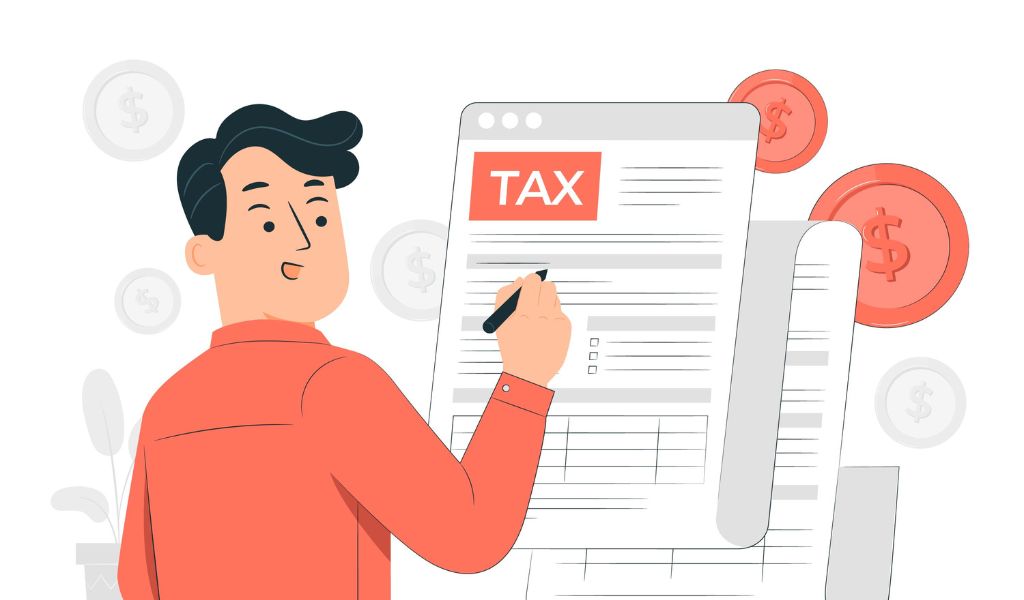The Challenges Of Self-Taxation As A US Expat
09 July 2025
5 Mins Read

toc impalement
Leaving the US and heading to Australia may seem like starting over. New house, new culture, new life. However, one thing remains unchanged: your tax responsibility to the United States.
Even from thousands of miles away, the IRS still demands an annual check-in. And if you’ve ever attempted to file your US taxes yourself while living in Down Under, you already know: it’s not as simple as filling out a few boxes and clicking submit.
This article examines the practical challenges of self-filing taxes as a US expat in Australia, as well as why most people ultimately seek assistance.
Difficulties Of Tax Filing From Seven Seas Away: US Expat Filing Taxes In Australia
US expat filing taxes in Australia involves multiple challenges, which include things like
1. US Expat Filing Taxes In Australia Still Owe A US Tax Return
Most Americans believe that when they’re paying tax in Australia, they’ll never have to lodge anything in the homeland. Think again.
The US taxes you on where you come from, not where you’re residing. Hence, even if you make a single cent in the United States, you’re still required to file a federal tax return every year.
Skipping your return and thinking you’re “too small to notice.” The penalties for non-filing can build up, especially if the IRS finds out through international reporting rules like FATCA.
2. The Forms Are Built for Domestic Filers, Not Expats
Most tax software assumes you’re located and working in the US. The second you try to report foreign income, Aussie super, or file FBARs, the software freezes or will not accommodate it.
Principal forms you might need:
- Form 2555 – Foreign Earned Income Exclusion (FEIE)
- Form 1116 – Foreign Tax Credit (FTC)
- Form 8938 – FATCA reporting
- FinCEN 114 – FBAR (Foreign Bank Account Reporting)
- Form 8621 – Required if you have certain foreign investments
People stop midway or give false information, not realizing that they left out a required form.
3. Dual Taxation Is A Very Real Danger For A US Expat Filing Taxes In Australia
You’re taxed in Australia. You’re taxed (or must report income) in the US as well. Therefore, unless you’re careful, you’ll pay twice for the same money.
How to prevent it:
- You generally have two options:
- Skip your income with FEIE, or
- Deduct it through the Foreign Tax Credit
But the trap is that they’re not cross-substitutions for every kind of income, and using the wrong one will cost you.
For example, your employer’s contributions to your Australian superannuation may be deemed income by the IRS, although they’re deferred tax in Australia.
4. The Tax Years Don’t Line Up: US Expat Filing Taxes In Australia
The US tax year is from December 31 to January 1. Australia’s is from June 30 to July 1.
Therefore, before you try to claim tax credits or exclusions on your US return, you need to match income and tax paid, but they’re on different schedules.
This typically leads to:
- Manually prorating income
- Using the wrong exchange rates
- Reporting incorrect tax paid in the “wrong” year
One mistake here and your credit is denied.
5. Currency Conversions Aren’t Always Easy
The IRS just wants to see numbers in USD. But your income, taxes, and bank accounts in Australia are all in AUD.
The options:
- You have a couple of options:
- Use the average yearly exchange rate
- Convert each transaction to the actual date
If you don’t use one consistently, or you mess up in converting, your return will flag problems, or you could end up underreporting income altogether.
6. Reporting Your Australian Super Fund
Most Americans consider superannuation a straightforward pension. Thus, to the IRS, though, it might be a foreign trust or even a foreign grantor trust.
Super accounts may need to file Form 3520 and 3520-A (forms that are used for foreign trusts)
Failure to report these forms may lead to penalties of up to $10,000 a year. As a result, even rollovers and employer contributions may have to be reported.
The rules aren’t specific, even with experts, so DIY is a risk.
7. A US Expat Filing Taxes In Australia Might Need To File FBAR
In case you have over $10,000 USD of foreign bank account balances (joint accounts, employer-paid accounts, or term deposits) total for any period of the year, you’ll need to file an FBAR.
The catch:
- Most don’t know that joint accounts or employer-paid accounts are added
- The FBAR is not reported on your tax return—it’s done separately with FinC
And what about the penalties? Failing to file an FBAR has steep penalties even if there’s no tax owed.
8. Mistakes Can Last For Decades
The IRS statute of limitations doesn’t kick in if your return is missing or you never filed one in the first place. Therefore, you may be audited years down the road.
Practical risks of doing your own returns:
- Omitting exclusions or credits
- Paying too little (or too much) taxes
- Filing incomplete returns
- Failing to file state tax returns when you still have U.S. ties
In some cases, expats learn too late that they would have been eligible for Streamlined Filing Compliance, but only if they hadn’t filed in error on their own.
Table Summary: Self-Filing Vs. Working With An Expat Tax Pro
| Aspect | Self-Filing | Using a Tax Specialist |
|---|---|---|
| Handles Australian income | Possibly | Yes, with tailored guidance |
| FBAR and FATCA compliance | Often missed | Fully covered |
| Australian superannuation | Misclassified or omitted | Correctly reported and explained |
| Currency conversion rules | Confusing | Handled accurately |
| IRS and ATO alignment | Requires manual adjustment | Strategically matched |
| Long-term compliance | Risky | Reliable and audit-ready |
| Peace of mind | Low | High |
US Expat Filing Taxes In Australia: It’s Not Impossible But It’s Tough
It’s not impossible to file taxes as an Australian expat U.S. citizen, but it’s seldom easy. Even if you’re numerate and adept at forms, the regulations don’t always play nice, and there’s a high risk of getting it wrong.
If you’ve already taken the DIY route and found yourself bewildered or frazzled, no worries. The smartest thing sometimes is not to shortchange tax preparation; it’s shortchanging time, headaches, and possible penalties in the long run.
FAQs: Self-Taxation As A U.S. Expat In Australia
Yes. US citizens must report all their income worldwide, regardless of their place of residence. Therefore, Australia and the US have a tax treaty, but you must still file a return.
Not usually. They do not do foreign pension reporting, FBARs, or most forms expats need.
You could be charged late penalties, lose the right to claim the Foreign Earned Income Exclusion or owe extra taxes. You might, however, qualify for IRS amnesty programs like Streamlined Filing.
Possibly. The IRS will probably treat it as a foreign trust, and earnings may be taxed annually, even if they are tax-deferred in Australia.
Yes, if the total amount of money in all of your foreign accounts crossed the $10,000 USD threshold at any point during the year, you’ll be required to file an FBAR.
Read Also: Filing US and Australian Taxes: 8 Reasons Why Your Tax Refund Is So Low

















